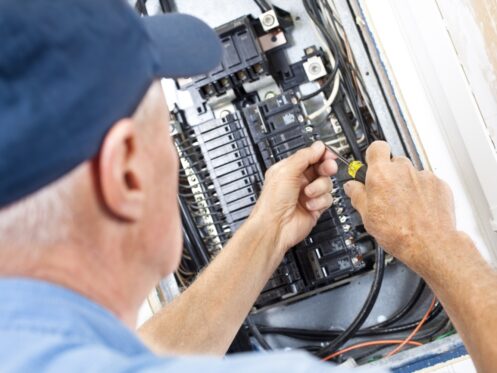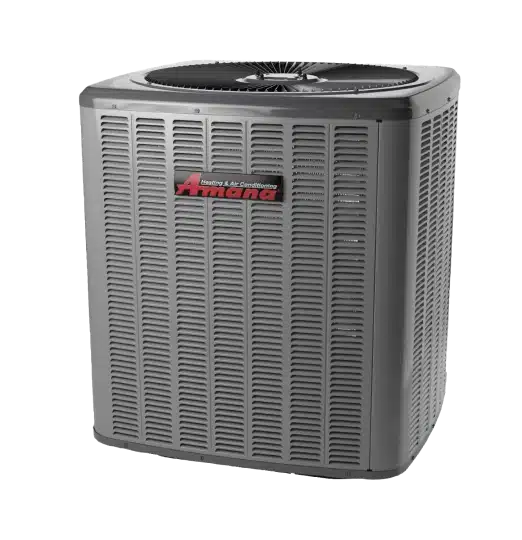Electricity powers our modern world, but it’s essential to remember that it can be both a powerful ally and a potential hazard if not managed correctly. When your electrical wiring system functions incorrectly, it often goes unnoticed, but when issues arise, they can pose severe risks to your safety and the structural integrity of your property. Join us as we explore the telltale signs that you may have issues with your electrical wiring.
1. Frequent Circuit Breaker Trips
When too many electrical devices and appliances are connected to a single circuit, they draw more current than the circuit can safely handle. This causes the breaker to trip in order to prevent overheating and potential fires. This can happen in high-traffic areas like kitchens or home offices where multiple devices are used simultaneously.
Short circuits may also occur at times. This happens when a hot wire comes into direct contact with a neutral wire or when a hot wire touches a ground wire or a metal component. This creates a low-resistance path for electricity, causing a sudden surge in current and triggering the circuit breaker to trip. Short circuits can be hazardous as they generate heat and sparks, posing a fire risk.
Additionally, if your home’s electrical wiring is old or deteriorating, it may be more prone to overheating and circuit breaker trips. For example, older wiring systems, such as knob-and-tube wiring, may not meet the demands of modern electrical appliances and can be a safety concern.
2. Flickering or Dimming Lights
Voltage fluctuations occur when the electrical supply to your home experiences irregularities. These fluctuations can cause your lights to flicker or dim. Voltage drops are more common and can be caused by various factors, including heavy appliance loads on the same circuit or problems with the utility’s electrical distribution system.
Loose or deteriorating electrical connections at outlets, switches, or within the electrical panel can also disrupt the flow of electricity to your lights. When connections become compromised, they can generate heat, leading to flickering lights as the current intermittently flows.
The problem may also be related to your home’s voltage regulator. A malfunctioning voltage regulator can lead to unstable voltage levels, affecting the brightness of your lights.
3. Burning Smell
The most common cause of a burning smell in homes is overheating electrical components. This can occur within electrical outlets, switches, circuit breakers, or junction boxes. When wires or connections become loose or damaged, they can generate excess heat, causing insulation or nearby materials to burn.
The electrical appliances and devices in your Crandall home can also develop faults that lead to overheating and burning smells. Malfunctioning power cords, faulty circuitry, or damaged internal components can all contribute to this issue.
In addition, electrical wiring can deteriorate over time due to factors like age, exposure to moisture, or physical damage. This can result in exposed wires or damaged insulation, increasing the risk of electrical fires or a burning odor.
Also, the insulation surrounding electrical wires may sometimes become frayed or melted due to overheating. This exposes the wires and increases the risk of electrical arcing, sparking, or short circuits.
4. Warm or Discolored Outlets
Overloading a circuit by connecting too many devices or appliances can cause outlets to overheat. When a circuit is overloaded, the increased current flow generates excess heat, affecting the outlet’s temperature and appearance. In extreme cases, this can lead to the occurrence of electrical fires.
Discoloration or warmth can also be a sign of a defective outlet. Electrical 0utlets can become faulty due to wear and tear, aging, or manufacturing defects. Damaged outlets may not properly contact plugs, leading to resistance and heat buildup.
Also, moisture infiltration into electrical outlets can lead to corrosion, increasing resistance, and heat production. This results in discolored outlets.
5. Sparks or Electrical Arcs
When electrical connections like wire nuts or terminal screws become loose, they can create gaps in the circuit. When electricity jumps across these gaps, it generates sparks or arcs. Loose connections can occur at outlets, switches, circuit breakers, or junction boxes.
Outlets can also develop internal faults due to aging or wear. Faulty outlets may not make proper contact with plugs, leading to sparks or arcs when electronic devices are connected or disconnected.
Additionally, overloading a circuit by connecting too many electronic devices or appliances can result in excess heat being generated. This heat can sometimes cause insulation or wire sheathing to melt, creating conditions for electrical arcs.
6. Intermittent Power Outages
One common cause of intermittent power outages is an overloaded circuit. Connecting too many devices or appliances to a single circuit can trip the circuit breaker or cause protective devices to shut off power temporarily to prevent overheating and electrical fires. This can lead to frequent power outages.
Loose wiring connections within your electrical system, such as at outlets, switches, or junction boxes, can also disrupt the flow of electricity. When wiring connections become intermittent, they can cause power interruptions. A malfunctioning appliance or device can also cause intermittent power issues by creating short circuits.
7. Electrical Shocks
One of the primary causes of electrical shocks is exposed or damaged wiring. When wiring becomes frayed, worn out, or damaged due to wear and tear, rodents, or other factors, it can create opportunities for electrical current to escape and come into contact with conductive surfaces. This can lead to electrical shocks when you touch objects or surfaces in contact with the damaged wiring.
Electrical wiring systems are designed to have a proper grounding mechanism to divert excess electrical current safely into the ground. However, when the grounding system gets compromised due to faulty wiring or connections, the electrical current may not be appropriately redirected. This can result in shocks when you touch grounded appliances or plumbing fixtures.
8. Hot Switches or Outlets
Hot switches or outlets often result from loose electrical connections. Loose connections create resistance in the circuit, which can generate heat as electricity passes through. The heat buildup can cause the switch or outlet itself to become hot.
Also, if the wiring used in your electrical system is not appropriately sized for the circuit’s intended load, it can lead to overheating. Smaller wires may not be able to handle the electrical current passing through them, causing heat buildup.
Additionally, outlets frequently used for high-demand appliances, such as space heaters or air conditioners, can become hot over time. These appliances draw a lot of power. Therefore, if the outlets are not designed for such loads, they may overheat.
9. Rodent Damage
Rodents often chew through the insulation surrounding electrical wires. This exposes conductive wires and increases the risk of electrical faults, such as short circuits or arcing. Exposed wiring can also lead to electrical shocks or sparks if touched.
Rodent-damaged wiring also poses a significant fire hazard. Exposed wires and the combustible materials often found in homes can ignite, resulting in electrical fires. Electrical fires can spread rapidly and cause extensive damage to your property.
10. Altered or DIY Wiring
DIY wiring projects often do not comply with local electrical codes and regulations. DIY projects may involve incorrect wiring connections, such as improper wire splicing, inadequate grounding, or miswired outlets and switches. These errors can lead to electrical faults, overheating, and electrical fires.
If you suspect your home has altered or DIY wiring, consult a licensed electrician for a professional assessment. They are better suited and trained to identify potential wiring issues, safety hazards, or code violations.
Reach Out to the Pros
At Accurate Home Services, we have over ten years of experience in the electrical industry. We have experienced electricians who can effectively diagnose and resolve complex electrical problems. Our employees also have good communication skills and offer excellent customer service. We are responsive to questions, concerns, and feedback and maintain clear lines of communication throughout the service process. On top of that, we offer quality services, including repair and installation of various electrical systems.
Don’t wait until electrical problems escalate into serious safety hazards. Contact Accurate Home Services today for the best electrical services in Crandall.




